It is October 18, 1931.
Will Rogers, America’s cowboy philosopher, is on the radio.

The stock market crash is two years old.
Drought has come to thirty states, devastating family farms.
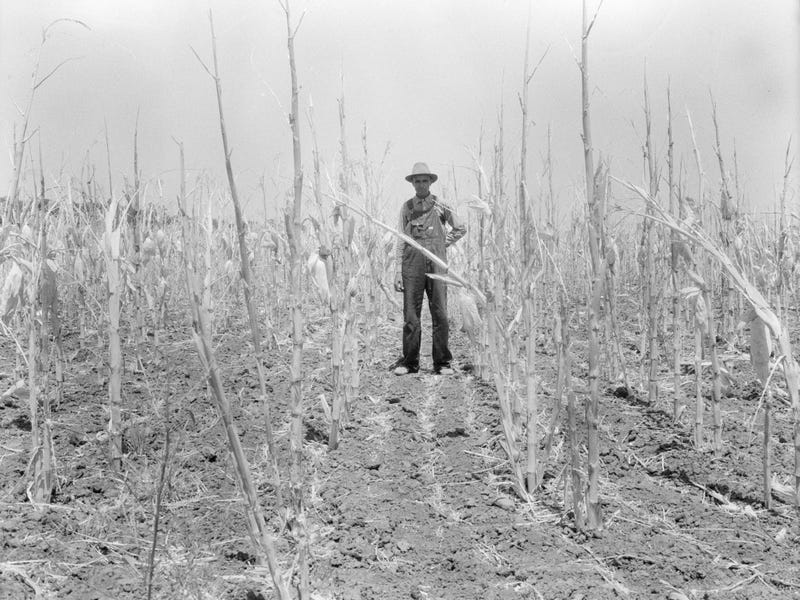
Employers have laid off millions to cope with declining consumer demand for their products.
Workers who have managed to keep their jobs have accepted wage cuts.
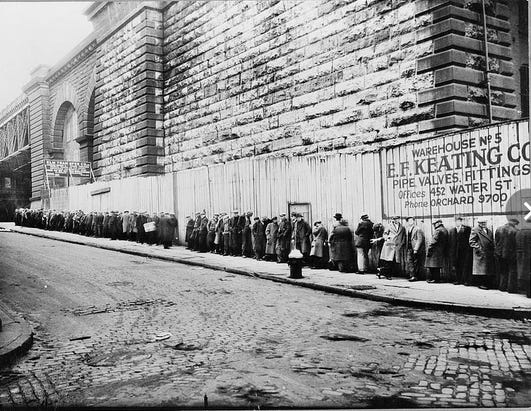
Early in the year, a wave of European bank collapses rippled through the economy, triggering more lay-offs.
And the needs of millions for food and necessities is much more than private charities can supply.

So Rogers steps up to the microphone and lays blame on ‘the big boys’ for causing the nation’s financial distress.


‘It was the labor of these men now unemployed who built their wealth,’ he claims.
And he urges these ‘big boys’ to redirect their wealth towards feeding the hungry.
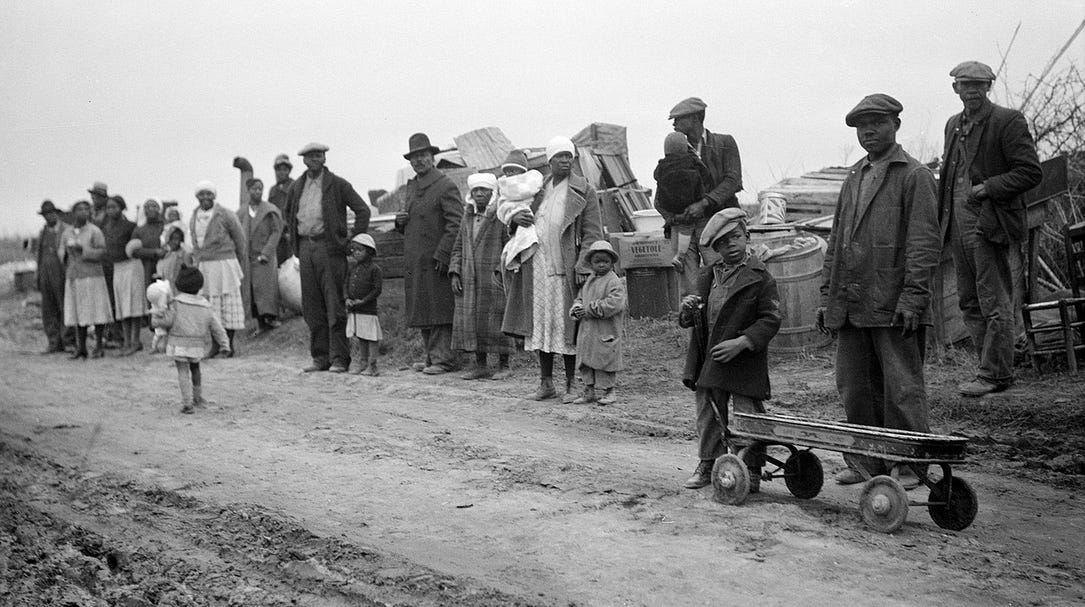
From Rogers’s speech:
Now we read in the papers every day, and they get us all excited over one or a dozen different problems that’s supposed to be before this country.
There’s not really but one problem before the whole country at this time.
[A]t least 7,000,000 people are out of work.
That’s our only problem.
There is no other one before us at all.

It’s to see that every man that wants to is able to work, is allowed to find a place to go to work,
and also to arrange some way of getting a more equal distribution of the wealth in country.
Now it’s Prohibition, we hear a lot about that.
Well, that’s nothing to compare to your neighbor’s children that are hungry.

It’s food, it ain’t drink that we’re worried about today.
Here a few years ago we was so afraid that the poor people was liable to take a drink that now we’ve fixed it so they can’t even get something to eat.
So here we are in a country with more wheat and more corn and more money in the bank, more cotton, more everything in the world
—there’s not a product that you can name that we haven’t got more of it than any other country ever had on the face of the earth
—and yet we’ve got people starving.

We’ll hold the distinction of being the only nation in the history of the world that ever went to the poor house in an automobile.
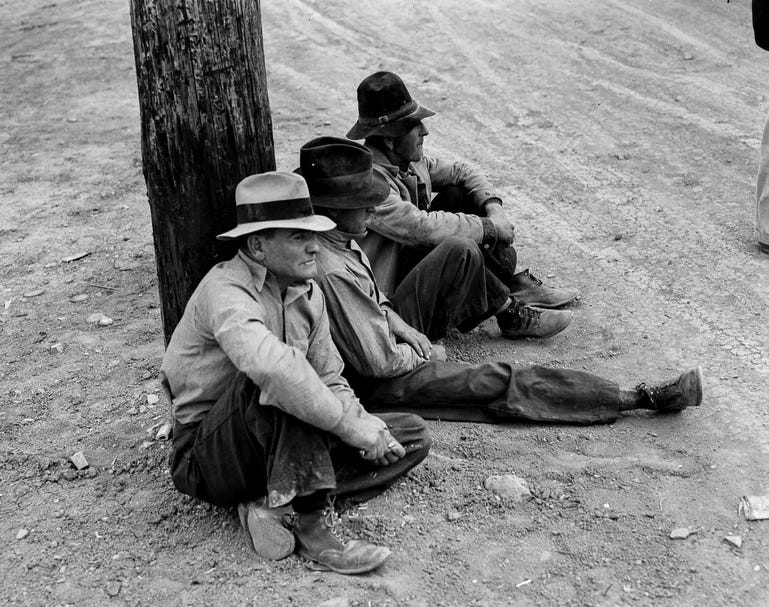
These people that you’re asked to aid, why they’re not asking for charity, they are naturally asking for a job,
but if you can’t give ‘em a job why the next best thing you can do is see that they have food and the necessities of life.

You know, there’s not a one of us who has anything that these people that are without it now haven’t contributed to what we’ve got.
I don’t suppose there’s the most unemployed or the hungriest man in America [who hasn’t] contributed in one way to the wealth of every millionaire in America.

It wasn’t the working class that brought this condition on at all.
It was the big boys themselves who thought that this financial drunk we were going through was going to last forever.
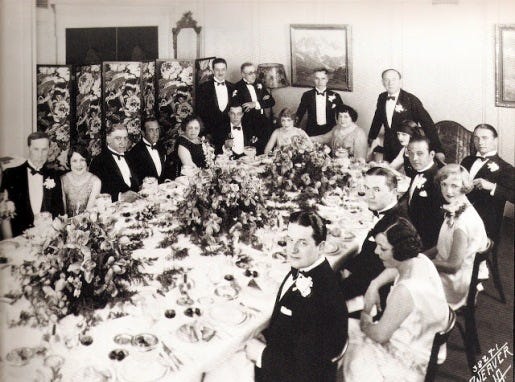
They over—merged and over—capitalized, and over—everything else.
That’s the fix we’re in now.

[T]here’s as much money in the country as there ever was.
Only fewer people have it.
******************************
I’ll see you tomorrow.
— Brenda
Rogers’s speech has been edited for brevity.



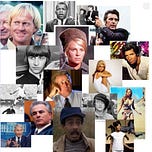









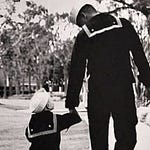
Share this post